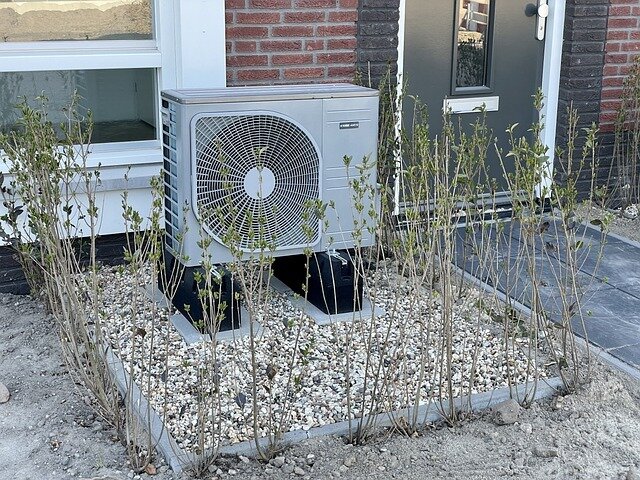You may have heard in the news recently, that one of the country’s biggest housebuilders is ditching gas in some of its new homes. Yes, Redrow confirmed it will be switching to heat pumps as standard for heating all of its detached properties. This is a significant step and sends a big message to others in the industry as the government looks to roll out ‘The Future Homes Standard’ and making new-build properties gas free by 2025.

The first to install green technology
Redrow’s decision to move away from gas comes after a successful heat pump trial. This involved tracking and monitoring a customer’s experience living with a heat pump for over a year. The results showed significantly less energy was consumed by a heat pump compared to a gas boiler. By comparing the usage and energy consumption of the heat pump for heating and hot water with that of a traditional gas boiler, the operating efficiency of a heat pump was around two to three times that of a gas boiler.
Redrow states their decision to move away from traditional gas boilers across their developments nationwide was also in part to meet homebuyers’ increased demands for energy efficient homes. The housebuilder confirms that all the new detached properties it builds will be heated by air source heat pumps and will have underfloor heating to the ground floor of the properties as standard.
What are heat pumps and how do they work?
Heat pumps work differently to hose traditional heating systems which burn fuel or convert electricity. Instead of generating heat, heat pumps take ambient heat from the air outside (even in freezing temperatures) and transfer it to renewable energy.
Here’s a step-by-step overview of how an air source heat pump works:
- Air from outside blows through refrigerant-filled tubes.
- The air warms up the refrigerant, turning it from a liquid to a gas.
- The gas passes through a compressor, which increases the pressure and adds more heat.
- The hot gases pass into a heat exchanger surrounded by cool water.
- The water warms up and is circulated through the home via underfloor heating & radiators.
- The refrigerant in the heat pump condenses back into a cool liquid ready for the cycle to start over again.
The benefits of a heat pump
It’s a known fact that air source heat pumps are incredibly more efficient than gas boilers – they rely on renewable energy after all. As well as reducing your carbon footprint with a heat pump, you can also make significant savings on your annual energy bills. Much like a boiler, a heat pump only needs to be serviced once a year, and they aren’t any noisier than boilers are, either.
With ‘The Future Homes Standard’ coming into play in 2025, and the need for housebuilders to considerably reduce carbon emissions, we’re likely to see more developers switch from gas boilers to heat pumps.
Barratt’s gas-free development in Froome
Back in 2021, housebuilder Barratt launched the first show homes on their first gas-free development, Delamare Park in Nunney, Froome. Instead of using gas, all 82 properties on the development were fitted with highly efficient air source heat pumps. As well as heat pumps, the Delamare Park development includes electric car charging points for every home. Barratt has in fact pledged to reduce direct carbon emission by 29% by 2025 and the company remains committed to achieving net zero greenhouse gas emissions in its own operations by 2040.
Delamare Park features a range of 2, 3, 4, and 5-bedroom homes on its small development. Located in Nunney, 10 minutes from Froome, the development is surrounded by countryside. It also features two play areas and is a 5-minute walk away from Nunney First School, making it perfect for families. You can see the remaining homes available for sale on Delamare Park, here.
Will new-build homes all soon be carbon zero?
As we get closer to 2025 and the introduction of ‘The Future Homes Standard’, we are likely to see more housebuilders introduce green technology in the homes they build. The Future Homes Standard will require the CO2 emissions produced by new homes to be 75%-80% lower than those built to current standards. And most importantly, heating which relies on fossil fuels (e.g., gas boilers) will be banned in new-build homes.
Heat pumps will most likely be the heating method of choice for many housebuilders, and we may see greater rollout of these in the coming months as the 2025 deadline moves ever closer.
 It’s a fact that new-build homes are far more energy efficient than traditional properties. If you’re looking to buy a first home, upgrade to a larger home, or downsize to a small property, take a look at the new-build properties available near you. Start your search for a new-build home here.
It’s a fact that new-build homes are far more energy efficient than traditional properties. If you’re looking to buy a first home, upgrade to a larger home, or downsize to a small property, take a look at the new-build properties available near you. Start your search for a new-build home here.